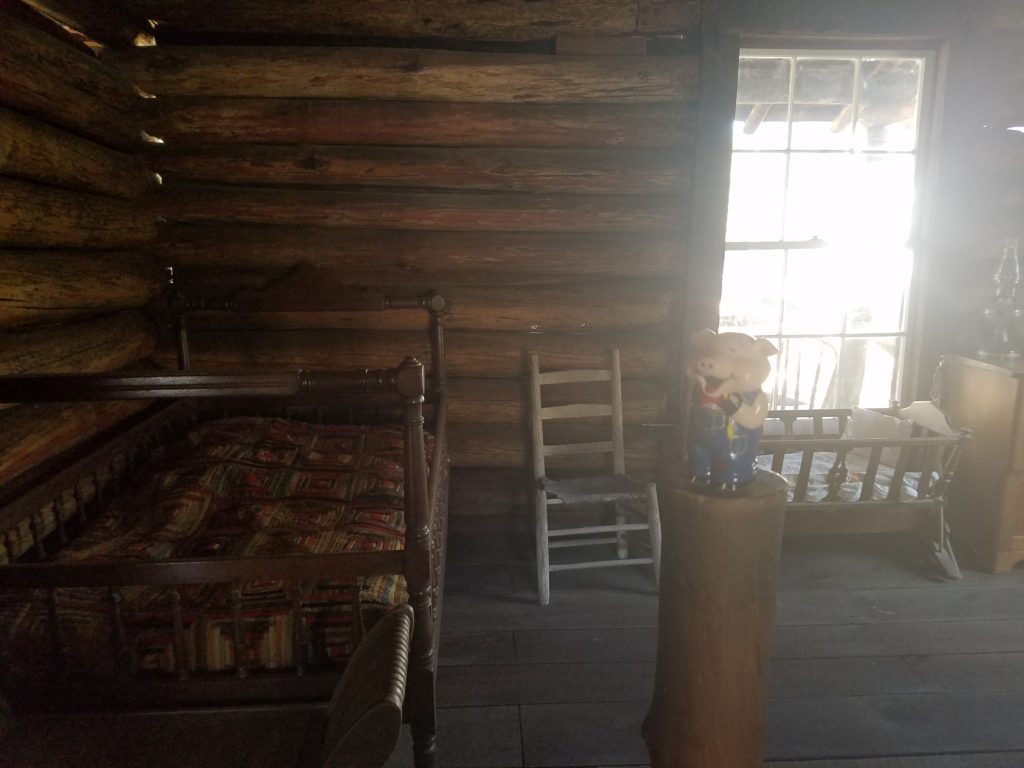
Me: Very rustic and charming.
Prodigal: I do love the country.
This is from the book Chicken Soup for the Country Soul by Jack Canfield, Mark Victor Hansen and Ron Camacho
I was twenty-eight years old, the age when most young people have their eyes firmly fixed on the promise of success-and I was a failure. Life had reached a dead end for Sarah Ophelia Cannon, the aspiring dramatic actress from Centerville, Tennessee.
Six years earlier, fresh from Ward-Belmont College, I had joined a theatrical production company in Atlanta, and had been going into small towns and rural communities producing country-style musical comedies. But now, in the summer of 1940, the country was in a depression, radio and changing times had altered people’s tastes, and amateur shows weren’t all that big anymore.
So, jobless and with nothing else in sight, I went back to Centerville. To bring some money into the house, I finally got a WPA job as a recreation-room director. It paid fifty dollars a month, for which I was grateful, but it sure was a dull job.
I felt so frustrated in my plan to be a dramatic star that I kept praying, “God, where, where, where do I go? What do I do? And when no answers came to me, I found myself questioning God in despair.
Restless and dissatisfied though I was, it was nice in a way, to be back home. I tried to relieve the dullness of my job by teaching some of the town’s youngsters music and drama. And when I got a chance, I’d try my luck as a performer, myself. I’d dress up as this rangy country girl, which I was anyway, and tell little stories and jokes that I’d picked up during my years with the production company, living around country folk. I gave this country girl a name–Minnie Pearl.
Summer faded, and my spirits sank lower and lower. One deary October afternoon I was in the WPA recreation room, waiting for the children to thunder down on me when a banker friend, Jim Walker, came in.
“Ophelia,” he said, “we’re going to have a banker’s convention here. I understand in the evenings you’ve been teaching some children dramatics and dancing and singing. Would you let the children entertain the bankers?”
I said, yes, of course. He started to walk away, then he stopped and turned. “Oh, by the way,” he added, “the speaker from Chicago is flying into Nashville and then driving to Centerville. If he’s late would you mind doing that thing you do?”
“You mean Minnie Pearl?”
“That’s it. Would you kill time with this Minnie Pearl thing until the speaker gets here?”
I told Jim I’d do it.
That night we performed for the bankers. The children sand and danced to old-time, popular songs while I was backstage, disheveled and frantic, getting the children off and on the stage.
We finished the program, and Jim came backstage. “The speaker’s not here yet, Ophelia. You’ll have to help us.”
“All right,” I told him. “Just give me a minute to straighten up.” Then I went out in front of the hundred or so men in the audience and said, “I’d like to give you my interpretation of the mountain girl, Minnie Pearl.”
I started telling them about the marvelous, mythical town of Grinder’s Switch, about my Uncle Nabob and Aunt Ambrosia and Brother and his dog and the horse shoe and all those silly things. And the bankers were laughing and applauding. When I ran out of stories, I looked over at Jim, and he shook his head.
“No,” he said, “he’s not here yet!”
So I went over to the piano and started playing and singing–“Maple on the Hill” and “Careless Love” and “Red River Valley” and a lot of old country songs. The men loved it.
After I’d sung awhile, and still no speaker, I said to the audience, “Well, let’s just all sing.” The men joined me in “My Wild Irish Rose” and “Let Me Call You Sweetheart.”
Then finally Jim came over to me and said, “He’s here. You can stop now.”
The men shouted, “Oh no! Let’s sing some more!” I smiled real big, thanked them real big and turned the program back over to Jim.
When I got home, Mama asked me how it went. “Oh pretty well,” I said. I had just spent the evening clowning. It didn’t mean anything.
But one of the bankers in the audience, Bob Turner, knew Harry Stone, the manager of the great country music station in Nashville, WSM. “Harry,” he told him, “there’s a girl down in Centerville who belongs on that Grand Ole Opry. She’s down on her luck. I know her family; I come down that way–and if you can give her a break, it sure would be a big favor to me.”
Harry Stone said all right and had me come up for an audition. And that changed my whole life. It was the beginning of Minnie Pearl, and, to me, the beginning of a new way to look at things.
I saw at last that I had become a failure only because I wouldn’t accept what I truly was. I had been trying to become something I couldn’t be. I would never be a great dramatic actress; I was Minnie Pearl, a plain, comic country girl, poking fun at herself and sharing that fun with others. When I learned to accept that role, the one God had given me, he turned my failure into success.
Sarah Ophelia Cannon
A wise man is strong; yea, a man of knowledge increaseth strength. PROVERBS 24 : 5
Jennifer Van Allen
www.theprodigalpig.com
www.faithincounseling.org
















